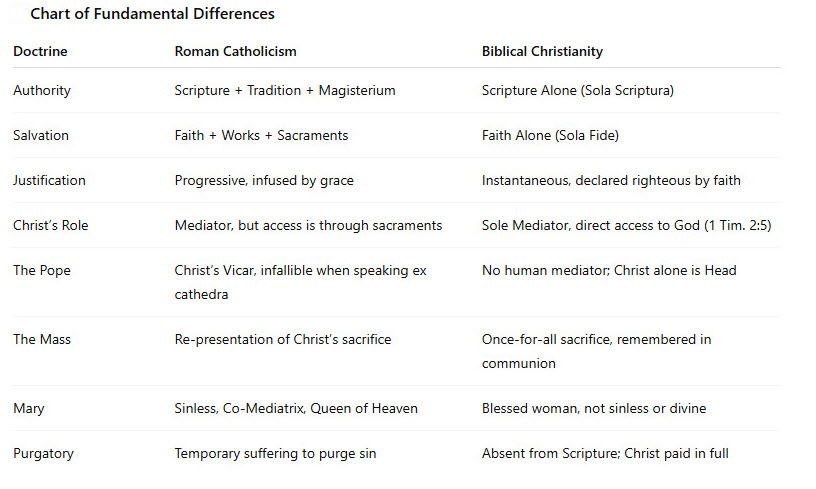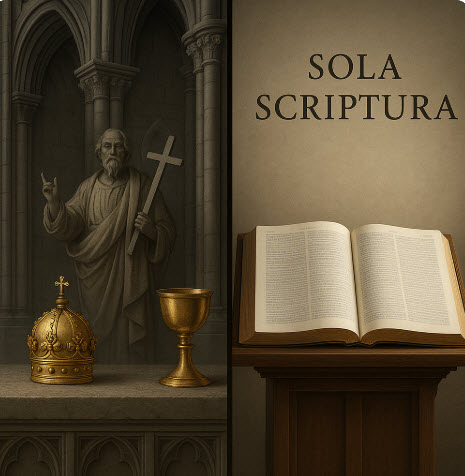Roman Catholicism traces its historical development to the early centuries of the Christian Church, but its distinct identity as a religious system took form gradually over time. While Catholics claim the Apostle Peter as their first pope, the formal institution of the papacy, hierarchical priesthood, and sacramental system evolved significantly over centuries. Early Church councils played a role in doctrinal development, but the centralized authority structure did not solidify until the late Roman Empire.
The foundational texts of Roman Catholicism include the Bible (both Old and New Testaments, including the Apocrypha) and a growing body of church tradition and magisterial teaching. Over time, councils like Trent (1545–1563), Vatican I (1869–1870), and Vatican II (1962–1965) defined doctrines such as papal infallibility, the Immaculate Conception of Mary, and the nature of salvation.
Major events shaped Roman Catholicism’s trajectory, including the rise of monasticism, the Great Schism with the Eastern Church (1054), the Protestant Reformation (1517), the Counter-Reformation, and modern ecumenical movements. Each of these contributed to the formation of Roman Catholicism as a complex blend of Scripture, tradition, and institutional authority.
Principles and Foundational Assumptions
At its core, Roman Catholicism teaches that salvation is mediated through the Church. It holds that man is fallen but can cooperate with God’s grace through faith and good works, particularly by participating in the sacraments. God is viewed as holy and sovereign, but His grace is distributed through the Church’s sacramental system. The Magisterium (teaching authority of the Church) and Sacred Tradition stand alongside Scripture as co-equal sources of divine revelation.
Epistemologically, truth in Roman Catholicism is not derived from Scripture alone but from a combination of sources interpreted by the Church. Ethical teaching is based on natural law and Church dogma. Destiny is defined by heaven, purgatory, and hell, with final judgment determined in part by one’s standing with the Church.
In contrast, the biblical worldview is God-centered, holding that Scripture alone is the authoritative rule for faith and practice (2 Timothy 3:16). It teaches that salvation is by grace alone through faith alone in Christ alone (Ephesians 2:8–9). Truth is objective, revealed by God, and not subject to institutional reinterpretation. Man is entirely dependent upon God’s mercy and cannot earn salvation.

Modern Influencers and Institutions
Today, Roman Catholicism is promoted globally by the Vatican, led by the pope and supported by the Roman Curia. Prominent Catholic leaders include Pope Leo and bishops who serve in various dioceses. Catholic institutions include schools, hospitals, universities (e.g., Notre Dame, Georgetown), and media outlets like EWTN.
The Church engages in missionary activity through orders such as the Jesuits, Franciscans, and Dominicans. Catholic social teaching influences global political discourse, especially on issues like poverty, immigration, and environmental stewardship. Through sacraments, education, and community programs, the Church exerts cultural and religious influence in nearly every nation.
Psychological and Cultural Appeal
Roman Catholicism appeals to many for its sense of stability, tradition, and community. The structured roles of priesthood, laity, and sacraments provide emotional and psychological security. The family-centered emphasis and moral teachings resonate with those seeking ethical clarity in a confused world. Rituals such as the Mass, confession, and confirmation offer a tangible religious experience.
However, this appeal can obscure the gospel. The biblical message is not about human participation in religious systems but about God’s unearned grace to helpless sinners (Romans 5:6–8). The Catholic system often replaces the direct relationship with God through Christ with mediation by clergy, saints, and rituals. The biblical call is to “repent and believe” (Mark 1:15), not to accumulate merit through Church-administered sacraments.
Practical Outcomes and Cultural Fruits
Roman Catholicism has made significant cultural contributions, including the preservation of classical knowledge, development of Western art and architecture, and global humanitarian work. However, its theological system has also produced troubling spiritual outcomes.
Catholic nations have often demonstrated nominalism—cultural Christianity without genuine conversion. In many places, ritual replaces repentance. Marian devotion and saint veneration introduce syncretism and distract from the sufficiency of Christ. The idea of purgatory undermines assurance of salvation, while works-based righteousness burdens the conscience without offering true peace.
In contrast, biblical Christianity transforms individuals through new birth (John 3:3), leading to changed lives and fruitful engagement with culture—marked not by religious obligation but by love, joy, and gospel liberty.
Criticisms that Biblical Christianity Poses to Roman Catholicism
Biblical Christianity levels several serious criticisms at Roman Catholicism:
- Logical inconsistency: The claim that Scripture and Tradition are equal in authority collapses when Tradition overrides Scripture. For example, the dogma of the Immaculate Conception has no biblical foundation but is accepted based on Church authority.
- Moral and legal contradiction: The Church teaches grace but also insists on human merit. This confuses law and gospel and leads to a double standard of salvation.
- Historical falsification: The doctrine of apostolic succession and the papacy is retroactively read into early Church history. The early bishops of Rome did not claim the universal authority later attributed to popes.
- Spiritual deception: By promoting Mary as “Co-Mediatrix” or elevating the Eucharist as a re-sacrifice of Christ, Catholicism undermines Christ’s once-for-all atonement (Hebrews 10:10–14).
Criticisms that Roman Catholicism Offers to Biblical Christianity
Catholic apologists often claim that Protestants have fragmented the Church by rejecting centralized authority. They argue that “Scripture alone” leads to doctrinal chaos and sectarianism. Catholics also critique the lack of continuing revelation and authoritative interpretation, accusing evangelicals of subjectivism.
Some claim that the Reformation severed believers from the historic Church and that Protestantism offers no tangible means of grace. Others accuse evangelicalism of emotionalism, anti-intellectualism, and an overemphasis on personal experience.
Christian Counter-Responses
In response, biblical Christianity holds that truth is not dependent on institutional unity but on fidelity to God’s Word. The early Church recognized Scripture as the ultimate authority, and the Bereans were praised for testing apostolic teaching by the Scriptures (Acts 17:11).
The so-called chaos of Protestant diversity reflects human sin, not biblical deficiency. Protestant churches that remain faithful to Scripture demonstrate unity in essential doctrines—justification by faith, the Trinity, and Christ’s sufficiency.
Roman Catholic claims to apostolic continuity collapse under historical scrutiny. The New Testament presents no evidence of a pope or priesthood offering sacraments. Salvation is not mediated by ritual but by faith in the risen Christ (Romans 10:9–10). Mary is honored in Scripture, but she is never exalted as a co-redeemer. The mass is not a new sacrifice but a remembrance (Luke 22:19).
Spiritual Nature of the Conflict
This conflict is not just intellectual—it is spiritual. As Paul wrote, “We wrestle not against flesh and blood, but against principalities… against spiritual wickedness in high places” (Ephesians 6:12). Satan’s strategy is not always atheism—it is often religion that replaces the gospel with human effort.
Roman Catholicism contains enough truth to seem authentic but enough error to mislead millions. The issue is not who appears more moral or historic—it is who is proclaiming the true gospel of grace.
Why Contemporary Christians Must Be Equipped
In today’s pluralistic and confused culture, Christians must be equipped to discern truth from error. Roman Catholicism remains the largest professing Christian body in the world. Many believers encounter its teachings in marriage, media, or family life. Without biblical literacy and discernment, they risk being “tossed to and fro by every wind of doctrine” (Ephesians 4:14).
We must recover confidence in the sufficiency of Scripture and the clarity of the gospel. Christians are called not just to refute error but to love the lost and proclaim the only hope of salvation—Jesus Christ crucified and risen.
Let us stand firm, speak the truth in love, and hold fast to the gospel that alone has the power to save.
S.D.G.,
Robert Sparkman
rob@christiannewsjunkie.com
RELATED CONTENT
Concerning the Related Content section, I encourage everyone to evaluate the content carefully.
Some sources of information may reflect a libertarian and/or atheistic perspective. I may not agree with all of their opinions, but they offer some worthwhile comments on the topic under discussion.
Additionally, language used in the videos may be coarse. Coarse language does not reflect my personal standards.
Finally, those on the left often criticize my sources of information, which are primarily conservative and/or Christian. Truth is truth, regardless of how we feel about it. Leftists are largely led by their emotion rather than facts. It is no small wonder that they would criticize the sources that I provide. And, ultimately, my wordview is governed by Scripture. Many of my critics are not biblical Christians.
Feel free to offer your comments below. Respectful comments without expletives and personal attacks will be posted and I will respond to them.
Comments are closed after sixty days due to spamming issues from internet bots. You can always send me an email at rob@christiannewsjunkie.com if you want to comment on something, though.
I will continue to add items to the Related Content section as opportunities present themselves.

